Jacques Cousteau has rightly said “The best way to observe a fish is to become a fish.” Then how do you become a fish? Well, Scuba Diving is the answer. Figuring out how? Let’s know what Scuba Diving actually is.
SCUBA stands for Self-Contained Underwater Breathing Apparatus. It was invented by the Frenchmen Émile Gagnan and Jacques-Yves Cousteau in 1943.
Scuba Diving is one of the most exciting things to do on adventure, as it allows you to explore the subaqueous world in a way that few other activities can. And if you are planning to witness the alluring life beneath the ocean, then you can surely glance over these scuba tech tips to make your dive safer and more enjoyable.
1. Plan your dive precisely
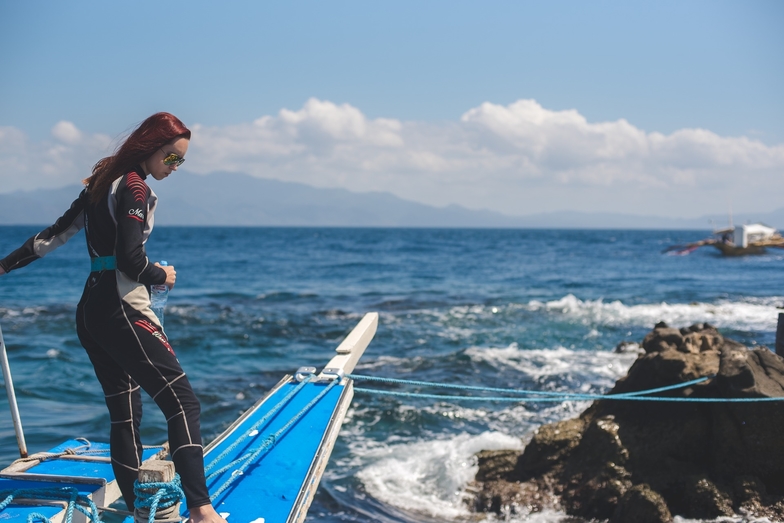 Get well acquainted with the information about your diving spot and the diving conditions at that place. Also, have an idea of the creatures you are about to observe. Before you dive you need to have an accurate assessment of the sea conditions.
Get well acquainted with the information about your diving spot and the diving conditions at that place. Also, have an idea of the creatures you are about to observe. Before you dive you need to have an accurate assessment of the sea conditions.
2. Take insights from the instructor
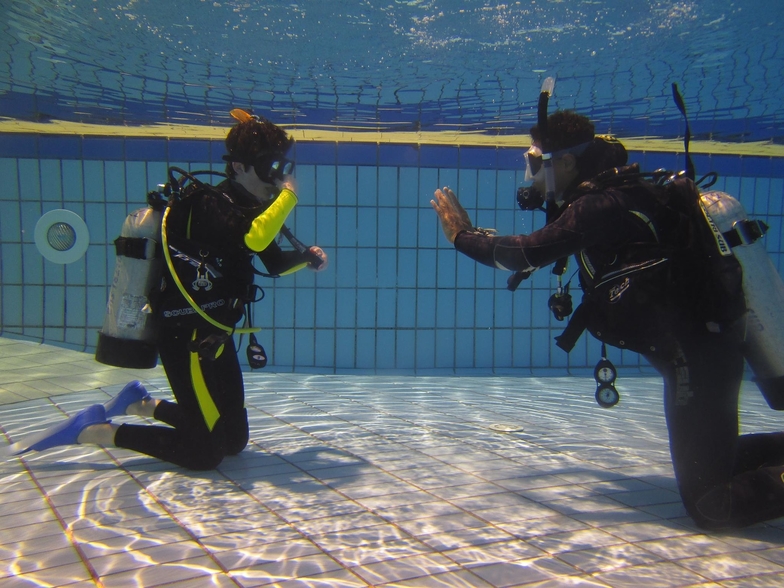 Learn the basics of scuba diving from the instructor. Don’t dive in case you have any queries. Always keep in mind that down there you will not be able to communicate and it is very important that you understand what you should do at any time, the protocols, etc. The information is needed for being calm and to ensure security for all, so clarify all your doubts before handedly by asking questions to your instructor.
Learn the basics of scuba diving from the instructor. Don’t dive in case you have any queries. Always keep in mind that down there you will not be able to communicate and it is very important that you understand what you should do at any time, the protocols, etc. The information is needed for being calm and to ensure security for all, so clarify all your doubts before handedly by asking questions to your instructor.
3. Choose a day likely to have decent weather
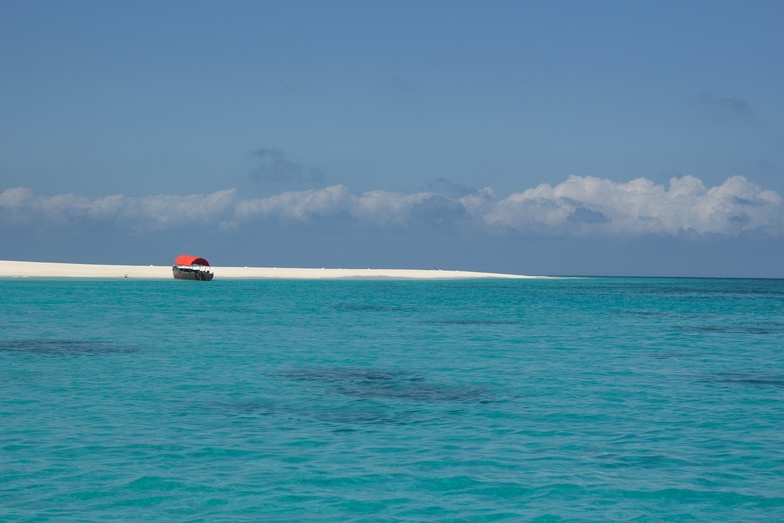 The weather conditions can affect your day of diving. Waves also create underwater currents thereby making it difficult to reach the point of immersion. For a safer experience, it’s wise to consider scuba tech tips that help you navigate these conditions. If the weather doesn’t sound pleasant, then you can surely postpone your diving plan.
The weather conditions can affect your day of diving. Waves also create underwater currents thereby making it difficult to reach the point of immersion. For a safer experience, it’s wise to consider scuba tech tips that help you navigate these conditions. If the weather doesn’t sound pleasant, then you can surely postpone your diving plan.
4. Check deep-sea diving suit
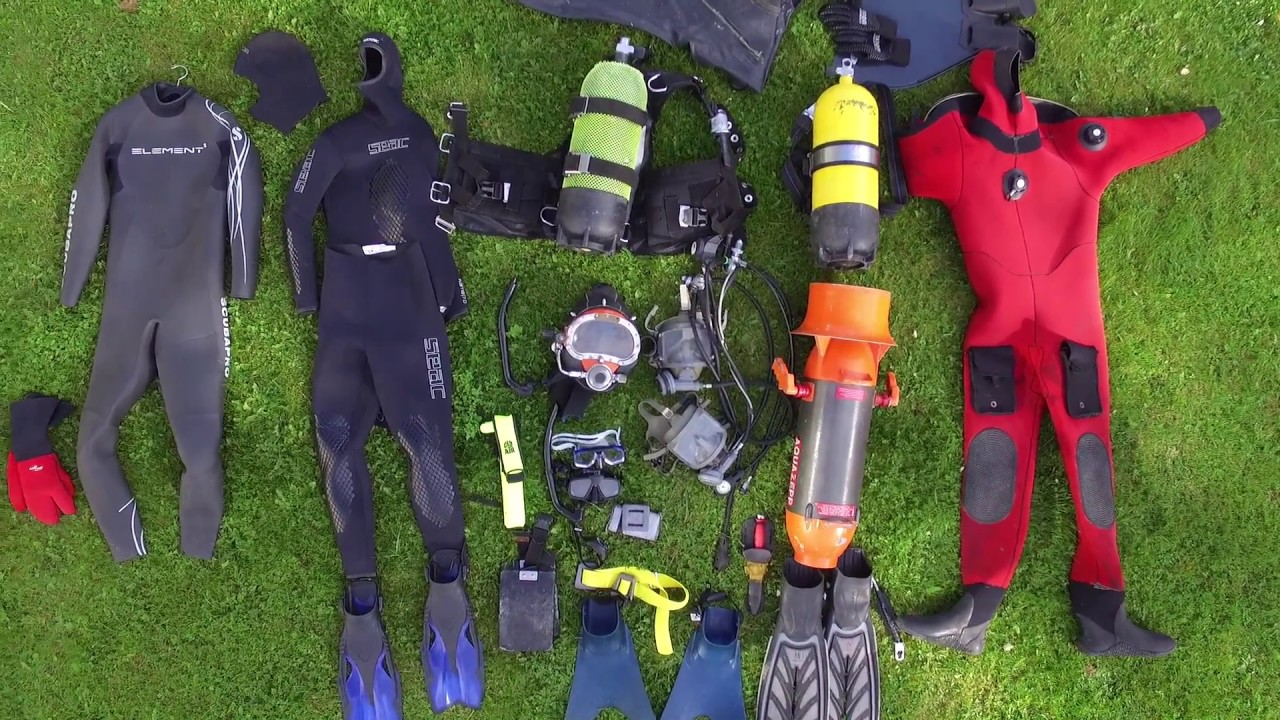 Test your inflator hose and weights to ensure everything is working and properly attached. Also, check that the neoprene and glasses adapt properly to your body. Invest in Good Gear. Your gear is your key to surviving the depths. Don’t be economical with it, but rather spend extravagantly on a good quality regulator, BCD, computer, mask, fins, etc., that you can rely upon.
Test your inflator hose and weights to ensure everything is working and properly attached. Also, check that the neoprene and glasses adapt properly to your body. Invest in Good Gear. Your gear is your key to surviving the depths. Don’t be economical with it, but rather spend extravagantly on a good quality regulator, BCD, computer, mask, fins, etc., that you can rely upon.
5. Get ready physically and mentally
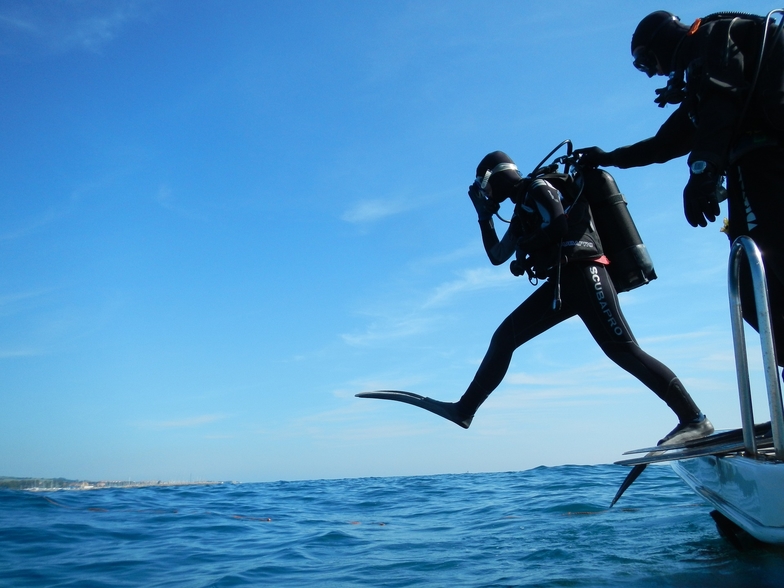 Physical fitness and attitude are undoubtedly the keys to safe diving. It is important that you maintain a positive attitude and that you control your nerves in order to face any problem that may arise. In addition to your equipment, your body needs to be ready to dive. If you are feeling ill or otherwise unprepared to dive, then reconsider your decision to dive. It’s more important to miss a dive because you’re not feeling up to it than to take any further risks.
Physical fitness and attitude are undoubtedly the keys to safe diving. It is important that you maintain a positive attitude and that you control your nerves in order to face any problem that may arise. In addition to your equipment, your body needs to be ready to dive. If you are feeling ill or otherwise unprepared to dive, then reconsider your decision to dive. It’s more important to miss a dive because you’re not feeling up to it than to take any further risks.
6. Learn the dive signals
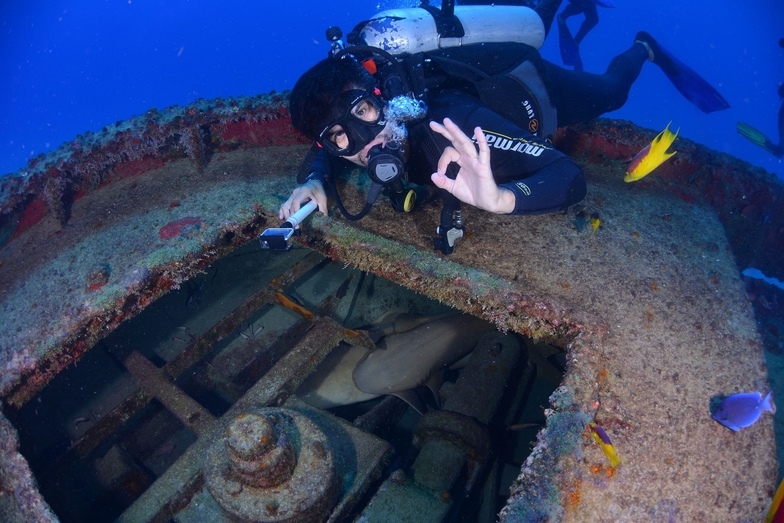 The “OK” hand signal is the first-hand signal that most scuba divers learn. It enables one diver to asks another diver if he is OK, the other diver must respond in return. A thumbs-up sign is used to communicate “up” or “end the dive.” The “up” signal must be learned for sure in scuba diving. The thumbs-down hand signal communicates “go down” or “descend” underwater. There are many more signals like these which you need to learn.
The “OK” hand signal is the first-hand signal that most scuba divers learn. It enables one diver to asks another diver if he is OK, the other diver must respond in return. A thumbs-up sign is used to communicate “up” or “end the dive.” The “up” signal must be learned for sure in scuba diving. The thumbs-down hand signal communicates “go down” or “descend” underwater. There are many more signals like these which you need to learn.
7. Proper Breathing
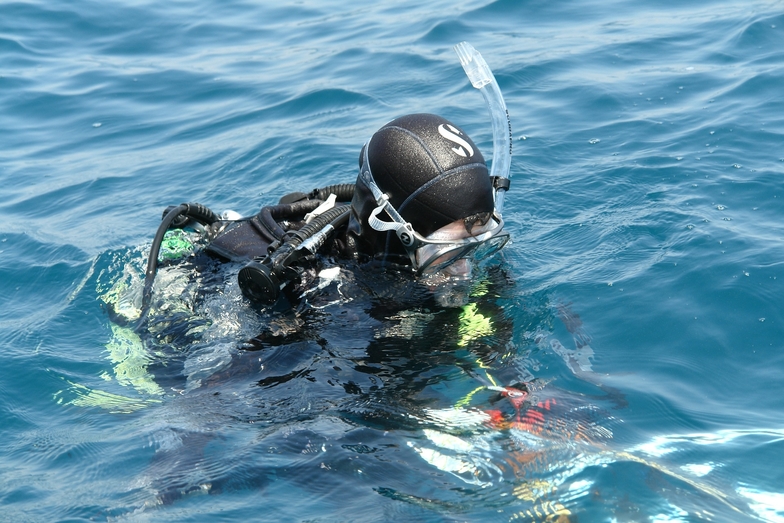 Take a breath and relax. Stay calm and you will stay focused and safe. This also helps conserve oxygen during your dive. Remember that you have a bottle of oxygen in your back, so breathe normally. Don’t let your nerves or instinct hold your breath while you dive, but relax and inspire and expire slowly as if you are on the water surface.
Take a breath and relax. Stay calm and you will stay focused and safe. This also helps conserve oxygen during your dive. Remember that you have a bottle of oxygen in your back, so breathe normally. Don’t let your nerves or instinct hold your breath while you dive, but relax and inspire and expire slowly as if you are on the water surface.
8. Check scuba pressure gauge
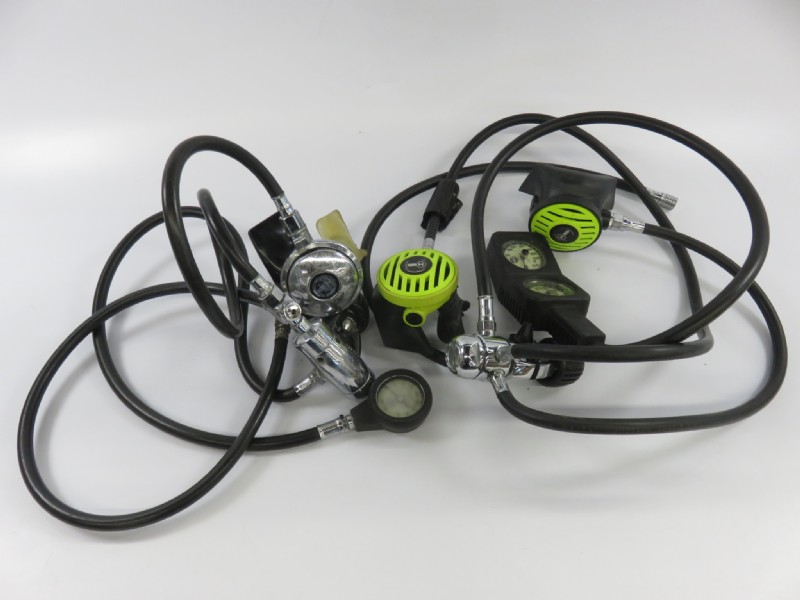 Watch Your Gauges. Heed the information of your depth, nitrogen and other gauges relay. This might sound obvious but you’d be surprised at the number of accidents that occur because divers do not follow this basic scuba tech tips. If you are diving with other members, then let them know when you reach half your tank, and again when you reach your reserve. All the members should keep an eye on the amount of air that is left.
Watch Your Gauges. Heed the information of your depth, nitrogen and other gauges relay. This might sound obvious but you’d be surprised at the number of accidents that occur because divers do not follow this basic scuba tech tips. If you are diving with other members, then let them know when you reach half your tank, and again when you reach your reserve. All the members should keep an eye on the amount of air that is left.
9. Check buoyant force of water
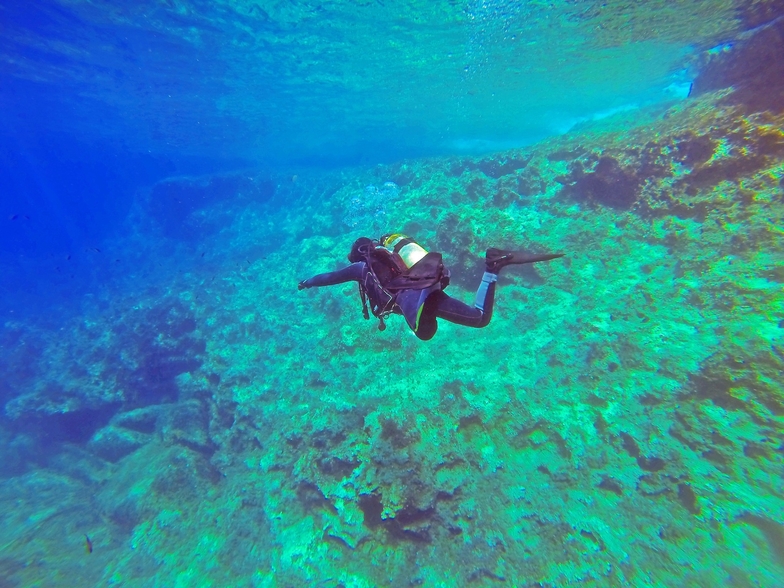 If you don’t control your depth and buoyancy properly then your safety will be at risk. So Check Buoyancy at the Surface. Make sure that you always carry a marker buoy with you. Do not assume that boats can see you! Plan your ascent so that it is as close to your boat as possible. While attending your safety stop, make sure that you are at the recommended depth.
If you don’t control your depth and buoyancy properly then your safety will be at risk. So Check Buoyancy at the Surface. Make sure that you always carry a marker buoy with you. Do not assume that boats can see you! Plan your ascent so that it is as close to your boat as possible. While attending your safety stop, make sure that you are at the recommended depth.
10. Follow your instinct
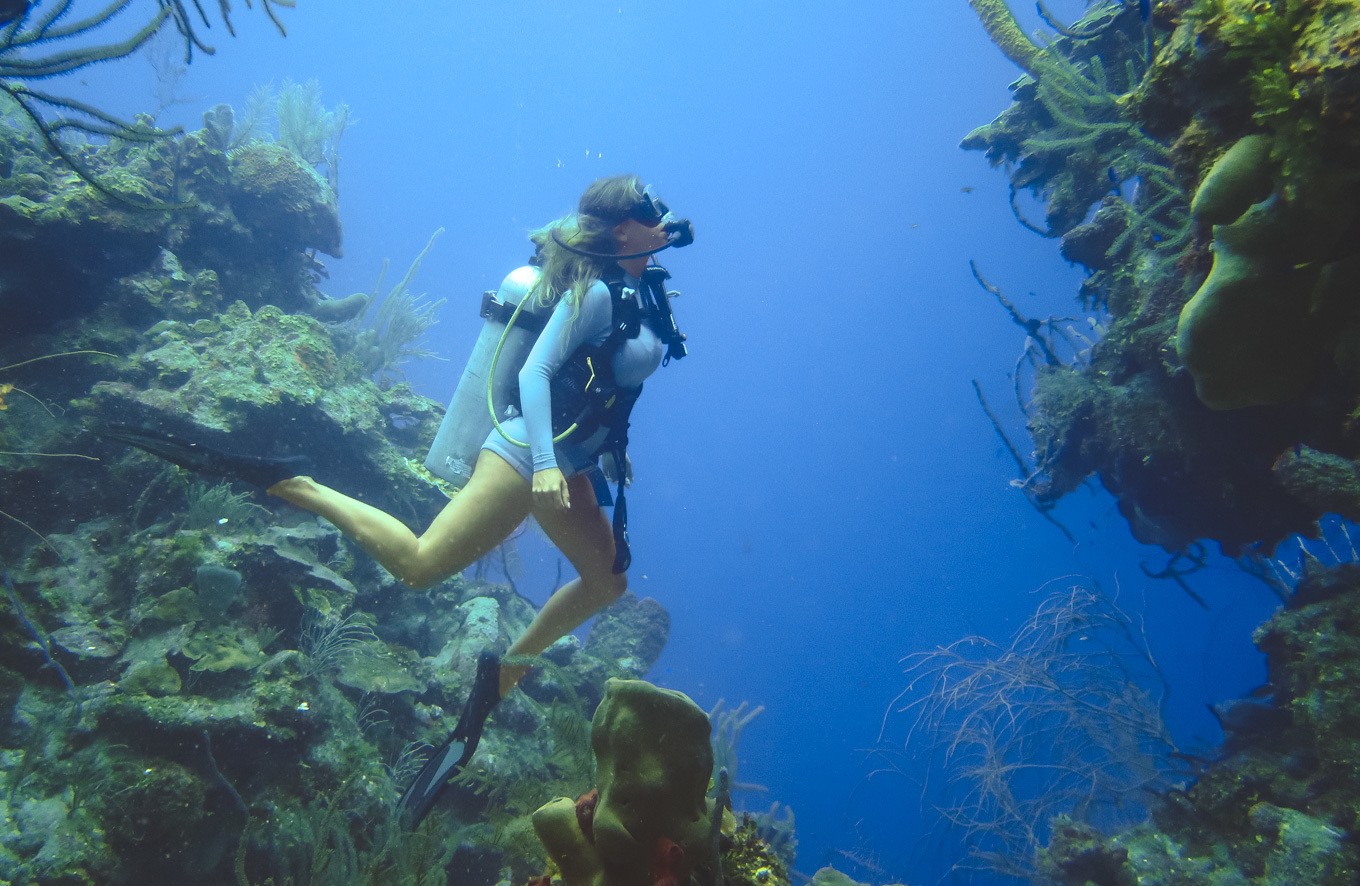 Trust your instincts and learn to make decisions you’re comfortable with. If you don’t feel like diving then don’t dive. The human being is wise and can perceive, instinctively, when something is not going as planned. Analyze the situation and, in case of doubt, contact your instructor. Stay Alert. Be aware of your surroundings.
Trust your instincts and learn to make decisions you’re comfortable with. If you don’t feel like diving then don’t dive. The human being is wise and can perceive, instinctively, when something is not going as planned. Analyze the situation and, in case of doubt, contact your instructor. Stay Alert. Be aware of your surroundings.
If you wish, you can keep a log which can become a reference guide for your future endeavors in the world of diving.
Mastering these scuba tech tips will not only enhance your diving experience but also ensure your safety underwater. Remember, every dive is a unique adventure, and being well-prepared is key to enjoying the wonders of the deep sea. Whether you’re a beginner or an experienced diver, always prioritize safety and stay informed.
For more tips and insights into the world of diving and other adventurous activities, visit Travels Passion, your go-to source for travel inspiration and expert advice. Happy diving!!!